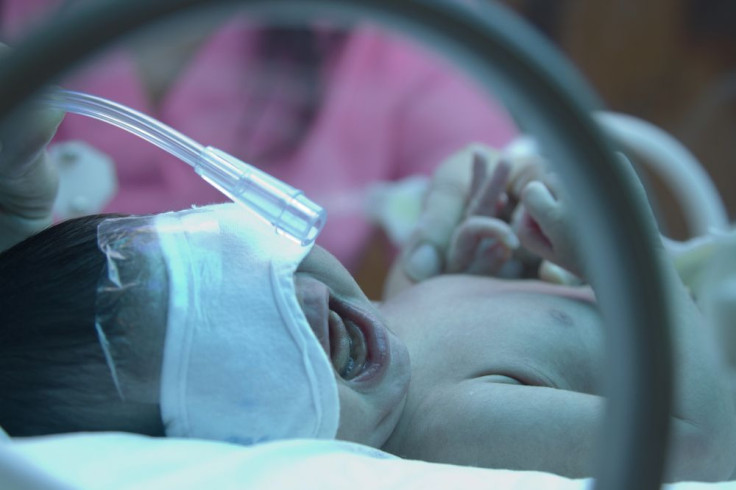Premature Babies' Immune Systems May Not Be As Weak As We Think; Scientists Find Hidden Store Of Antibacterial Molecule

Characterized as being born before 37 weeks of pregnancy, nearly one of every eight babies are born premature — 40 weeks is considered full term, according to the Centers for Disease Control and Prevention (CDC). It’s long been understood that being born prematurely interrupts a child’s development, affecting everything from their brain function to the size and function of their lungs, which usually finish developing in the final weeks of pregnancy. Among these poorly developed life functions are the baby’s immune system, which, for quite some time, doctors believed performed just as poorly. A new study, however, suggests that we haven’t been giving the premature baby’s immune system enough credit.
Preemies are already at a higher risk for infection, like most babies. Treating them quickly is the best way to prevent its spread to the bloodstream where it can cause sepsis, a life-threatening complication. The study, from researchers at King’s College London, found that a preemie’s immune system is stronger than once thought, and that it may just work differently than it would in an adult. If the researchers can find a way to tap into this newly found immune process, they may be able to help preemies fight infections better.
Until now, infants’ immune systems were believed to be mildly suppresses so that they wouldn’t trigger an inflammatory response to the developing baby’s body parts. Doctors believed that this immune suppression altered the structure of T cells, which are integral to a properly functioning immune system, and even prevented them from fighting pathogens. However, after analyzing the blood of 28 very premature babies, they found that the T cells actually produced a strong antibacterial molecule called interleukin 8 (IL8), which signals white blood cells like neutrophils and basophils to the site of infection. Though scientists have known about IL8’s function, they didn’t know T cells could produce if in high quantities.
“We found that babies have an in-built antibacterial defense mechanism that works differently to adults, but nevertheless may be effective in protecting them,” said lead author Dr. Deena Gibbons, of the Department of Immunobiology, in a press release. “This may also be a mechanism by which the baby protects itself in the womb from infections of the mother. The next stage of our work will be to better understand the pathways that result in the immune cells of the newborns being so different to those in adults.”
If they can do this, and learn to trigger the process in infected preemies, they may be able to reduce infant deaths around the world. In the U.S., preterm-related causes of death accounted for 35 percent of all infant deaths in 2009, more than any other single cause. If infants deaths in 2009 were anywhere near 2011’s rate of 24,000, then that’s a lot of babies that could be saved.



























